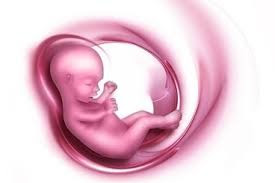Female fertility declines rapidly after the age of 37 — with women over 42 having only a five per cent chance of having a baby without fertility treatment.
As a woman ages, her eggs also age, this increase the chances of chromosomal abnormalities. This leads to an increase in conditions such as Down’s syndrome, where the egg has three copies of chromosome 21.
A woman in her 20s has only a 12-15 per cent chance of having a miscarriage each time she becomes pregnant. On the other hand, a woman in her 40s faces on average a 50 per cent risk of miscarriage.
However most chromosomal abnormalities in eggs lead to embryos that either fail to implant in the womb, or miscarry soon after implantation. In women over 40 most miscarriages are caused by the wrong number of chromosomes being present in the egg.
In the final stages of egg development just before ovulation, it undergoes two specialised cell divisions known as meiosis I and meiosis II. Securin is important for both divisions but in old eggs, it appears that there is insufficient securin remaining to ensure meiosis II takes place normally.
The discovery opens the way to improving an older woman’s chances of having eggs with fewer chromosomal abnormalities through regulating the processes that control securin levels in the two divisions of the egg or controlling the protein that securin regulates.



